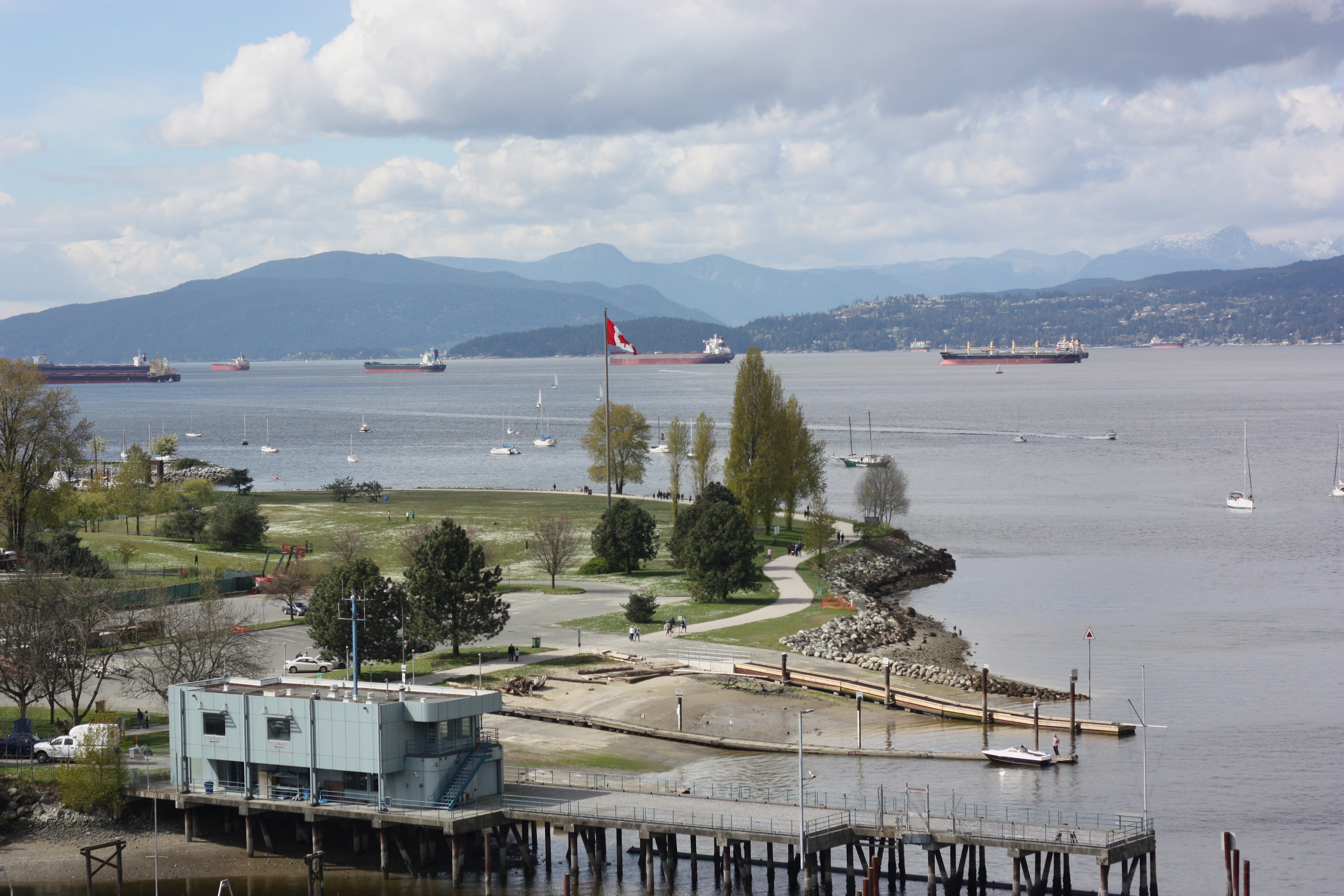On Thursday April 9, residents in Vancouver — occupied xʷməθkwəy̓əm, Skwxwú7mesh and Səl̓ílwəta land — woke to news of a toxic fuel spill in English Bay, remnants having made their way to a popular downtown beach.
According to Vancouver City Councilor Geoff Meggs, the federal government had reports of the spill between 5 p.m. and 6 p.m. Wednesday, but didn’t officially notify the City of Vancouver until 6 a.m. Thursday.
Meggs said there’s still no certainty as to “exactly when the spill occurred,” and that the city would prefer to be notified immediately.
Spill and cleanup
What has been defined as a small, but toxic spill by the City of Vancouver has hit close to home for many who see it as a caution against increased tanker traffic on the West Coast.
Wilfred Culham, who was sailing nearby, described the water like “somebody had taken a can of motor oil and dumped it everywhere,” and that it “smelled like you were driving through an asphalt construction site…it made you feel a little bit sick.”
On Thursday, families were spending time at the beach, while one group took it upon themselves to start a citizen’s cleanup. There were no officials, no evacuation and no warning signs of the health risks involved.
Kaleb Morrison was at the cleanup and said the next day they had a pounding headache that lasted for 30 hours, and shakiness — Morrison rarely gets headaches at all.
Meggs outlined quicker mobilization as one thing the city could have offered if they had been notified earlier.
Vancouver Mayor Gregor Robertson has since advised against unofficial cleanups.
Closed down Coast Guard
Fred Moxey, former Commanding Officer of the now shutdown Kitsilano Coast Guard station, said that his crew could have been prepared and on the scene within minutes rather than hours.
Likewise, he thinks the spill could have been noticed sooner had the station been opened; if not by the crew, the public often came through the station’s door to share concerns.
He explained that each crewmember was trained as an oil spill responder, being able to operate specialized equipment, which was ready for action within a moment’s notice. Included was 750 feet of boom at the station and another 1,000 on a specialized vessel.
“Because this spill is right in our backyard we would [have been] on the scene in minutes,” said Moxey. He has responded to hundreds of spills in his career, and said that within an hour the oil would have been contained; instead it took six hours.
He emphasized the importance of being at a spill quickly. When a spill begins to spread it clings to other freighters and it becomes difficult to determine which vessel is discharging fuel, he explained.
According to Moxey there’s a low and a high tide every six or six and a half hours, so by the time of response the spill had already moved around quite a bit.
Before the station was closed, Moxey put together a number of documents and analysis of why it was needed. He gave them to his local Conservative Party MPs, Andrew Saxton and James Moore, but the 35-year Coast Guard veteran never received a response.
In September 2012, there was 24-hour occupation of the soon-to-close station by concerned citizens, including then B.C. Federation of Labour president Jim Sinclair.
Increased tanker traffic
The Trans Mountain Pipeline expansion proposal would increase tanker traffic in the Salish Sea seven-fold.
The threat of more tankers spells worse devastation if there were to be a spill, or even a leak from the much larger ship.
Although Meggs said the spill’s size, precise content and amount recovered are still “subject to some verification,” estimations have put the total at roughly 2,700 litres.
For comparison, the 1990 Exxon Valdez disaster has been conservatively estimated at 416 million litres. In 2007, a Kinder Morgan pipeline spilled 234,000 litres, which triggered an evacuation of 50 homes and eventually soiled the shoreline of Burrard Inlet. The average tanker that would move bitumen from the Trans Mountain Pipeline would carry 750,000 barrels, or 119 million litres.
Which raises the question: Is there any response capability to a major spill if so many difficulties arose from an allegedly minor one?
Tyson Kelsall is a settler of colour, living on occupied xʷməθkwəy̓əm, Skwxwú7mesh, Stó:lō and Səl̓ílwətaʔ territory. Kelsall’s writing has also appeared in Adbusters, RankandFile.ca, the Vancouver Observer, Victoria’s Times Colonist, Canada University Press and OccupyWallSt.org. Follow him online @TysonKelsall
Photo: Kitsilano Coast Guard station sits abandoned at the opening of English Bay, photo by Tyson Kelsall.



